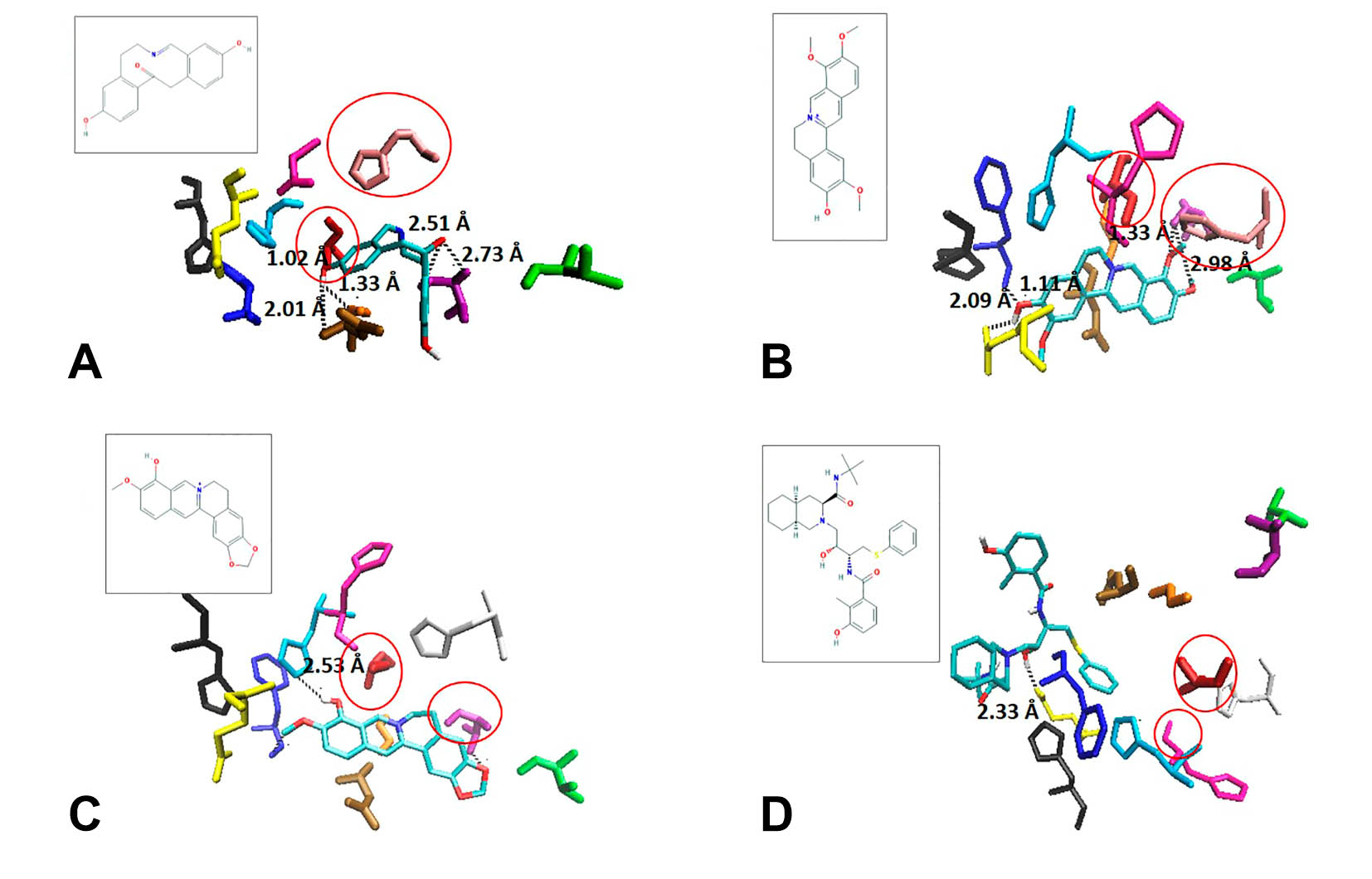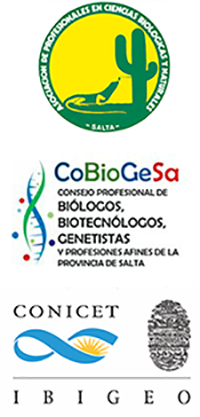In Silico Antiviral Activity from Berberis lilloana and B. commutata. Protoberberine Alcaloids Against Key Proteins SARS-Cov-2
Palabras clave:
Binding affinity, Docking, Protoberberine alkaloids, SARS-CoV-2Resumen
SARS-CoV-2, a new strain of coronavirus (CoV), was identified in Wuhan, China, in 2019, and has been threatening public health worldwide. The aim of this work was to evaluate protoberberine alkaloids compounds of vegetal origin as potential SARS-CoV-2 inhibitors through docking studies. Three key proteins of SARS-CoV-2, recently crystallized, were used as molecular targets: the spike glycoprotein (S), the main protease (Mpro) and the RNA-dependent RNA polymerase (RdRp). Molecular docking was performed using AutoDock, with the Lamarckian Genetic Algorithm, to analyse the probability of docking. The best energy binding values for S protein were, in kcal/mol: -10.67 for Jatrorrhizine, -9.65 for berberine, -9.22 for 5, 6-dihydroconstrictosine. For Mpro, they were, in kcal/mol: -10.15 for 5,6-dihydroconstrictosine, -9.86 for jatrorrhizine, -8.48 for berberubine. Finally, the best binding values for RdRp were, in kcal/mol: -9.04 for belambine, -8.99 for canadine and -8.90 for berberine. Key hydrogen bonds and hydrophobic interactions between protoberberine alkaloids and the respective viral proteins were identified. These results suggest that these alkaloids could potentially be useful as drugs to be experimentally evaluated against COVID-19.
Descargas

Publicado
Cómo citar
Número
Sección
Licencia
Derechos de autor 2024 Revista Ciencias Naturales

Esta obra está bajo una licencia internacional Creative Commons Atribución-NoComercial-CompartirIgual 4.0.















